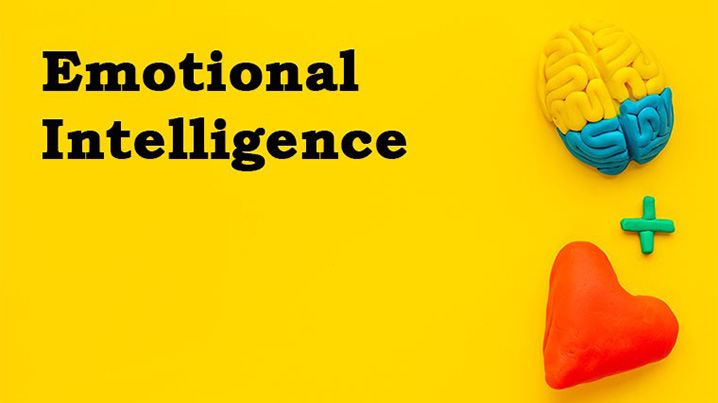Understanding Emotional Intelligence and Why It Matters
Emotional intelligence (EQ) is the ability to identify, understand, and manage your own emotions and recognise the emotions of others. The key components of EQ include self-awareness, self-regulation, internal motivation, empathy, and social skills. While IQ and technical skills are important in business, EQ is equally critical, especially for customer-facing roles. Employees with high EQ are better able to form meaningful connections with customers, provide exceptional service, and create satisfying experiences that lead to loyalty.
In today’s experience economy, customers don’t just want efficient transactions. They want more. Namely, they wish to feel valued, understood, and emotionally connected to the brands they support. This is where EQ comes in. Studies show that in B2C interactions, emotionally intelligent salespeople consistently outperform counterparts with lower EQ. Customers also report higher satisfaction when interacting with service staff who demonstrate compassion, active listening, and other emotionally intelligent behaviours.
The bottom line is that EQ drives real competitive advantage in business.
Applying Emotional Intelligence to Connect with Customers
There are practical ways businesses and staff can apply emotional intelligence skills to create stronger bonds with customers, and here are the key considerations:
- Self-Awareness. Being aware of your own emotions and triggers is essential for interacting with customers in a calm, professional manner.
- Self-Regulation. This involves controlling your reactions and responses, even when handling difficult situations.
- Empathy. It’s important to try to understand the customer’s perspective and feelings. This requires putting yourself in their shoes and feeling what they feel.
- Social Skills. Building rapport is one of the key elements of customer service, and active listening and communication styles are important tools to do so.
- Motivation. Staff should strive for a genuine desire to help solve problems and create positive experiences with customers.
Using Data and Research to Improve Emotional Intelligence
Improving EQ involves learning from customer interactions and using that data to enhance future customer experiences.
Leveraging customer data, feedback, and insights can help identify pain points, desires, and emotional triggers. Understanding the psychological principles and behavioural influences behind customer decisions also provides an edge. Here’s what you can do:
- Review ratings, surveys, and feedback to gain clarity on customers’ stated and unstated needs. Look for patterns revealing emotional motivators.
- Carefully observe the facial expressions and body language of customers to pick up on unspoken feelings and reactions.
- Test different approaches to connecting on an emotional level and measure impact. Experiment with ways to demonstrate empathy that resonate.
Ongoing learning is key. Companies genuinely invested in developing emotional intelligence will be able to gather the necessary data and insights to refine and improve the customer experience exponentially.
Developing Emotional Intelligence at Your Company
To build an emotionally intelligent workforce, companies need to make this a priority at a strategic level:
- Offer emotional intelligence training – Teach employees how to manage emotions, practice empathy, and communicate effectively. Build EQ skills across the entire team.
- Incorporate EQ screening in hiring – Add assessments to gauge candidates’ abilities to relate to and care for customers. Prioritise emotional intelligence as a valued skill during the recruitment process.
- Lead by example – Executives and managers should model ideal emotionally intelligent behaviours for others to follow.
- Foster a compassionate, service-oriented culture – Create an environment focused on exceeding customer expectations and caring for their needs.
- Measure and coach – Evaluate EQ competencies regularly. Provide coaching to help staff continue strengthening emotional intelligence over time.
When employees at all levels build emotional skills, they gain tools to delight customers and drive loyalty.
The Bottom Line – Emotional Intelligence Drives Loyalty and Growth
At the end of the day, emotional intelligence creates customers for life. Research shows buyers are five times more likely to switch brands due to indifference than dissatisfaction. High EQ enables companies to form meaningful relationships that keep customers coming back.
Data also demonstrates that emotionally intelligent teams have higher sales growth, customer satisfaction scores, and retention rates. Adopting an EQ mindset provides:
- Deeper customer insights
- Stronger connections
- Improved customer experiences
- Increased referrals and repeat purchases
In business today, the heart matters as much as the head. Emotional intelligence unlocks something powerful – customers who feel understood, appreciated, and connected. Those who leverage EQ will gain the ultimate advantage over competitors who don’t consider the humanness of their clients.
Emotional intelligence, neuromarketing and consumer psychology are key areas of my expertise, and so if you’re looking to leverage psychological principles to enhance customer relationships and drive growth, I invite you to reach out and connect with me. Together, let’s explore the power of EQ and how it can help you succeed.



